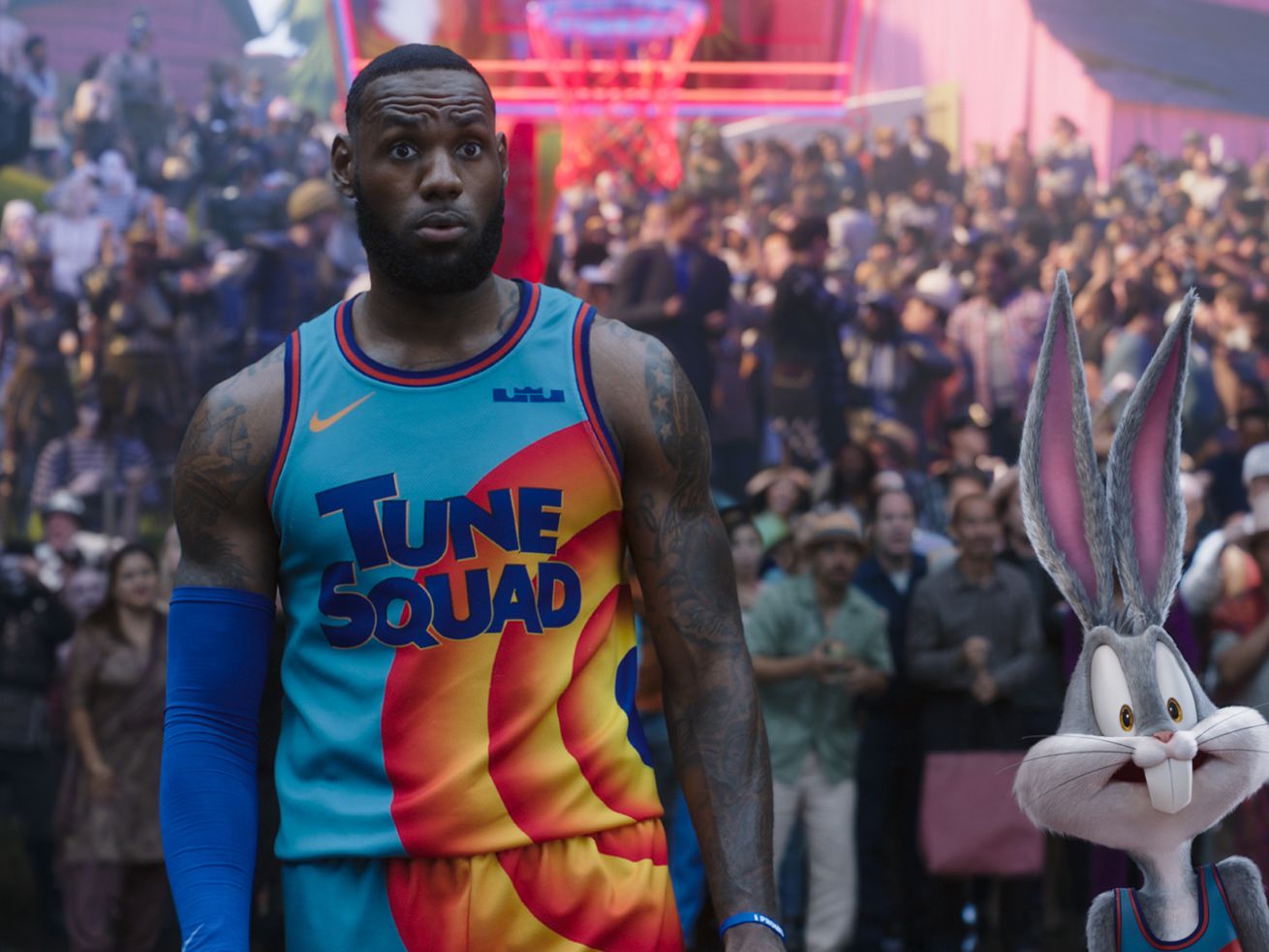Opinion: Will ‘Space Jam’ teach your kids to be hedonists?

Perhaps you’ll remember Michael Jordan during the climactic basketball game in the original ‘Space Jam’ movie. At halftime, his fictional team “the Tunes” are in despair, certain they can’t defeat the villainous Monstars. Jordan, in a classic twist, gives them “magic juice” (spoiler: its just water) to play better, only to have the Tunes discover in the end that all they really needed was confidence in themselves.
It’s not exactly Oscar material, but it’s certainly a moral that we’re all comfortable passing along to our child with little reservation.
That's not the case with what’s transmitted in this summer’s major box office offering “Space Jam: A New Legacy.” The film updates much since its mid-’90s predecessor: The protagonist is now LeBron James, the setting is not merely the Looney Tunes, but a connected universe of Warner Bros. properties, and the moral at the story’s center is, well, lacking.
In this tale, James’s fictional son, Dom, just wants to have fun, whether it’s goofing off on the basketball court or playing video games, but his father expects him to learn the fundamentals of basketball. “You never let me just do me,” his son laments early in the film.
The film borrows many of the same beats from its predecessor. James and the Looney Tunes are down at halftime with the fate of the universe on the line. This time, rather than giving the Tunes confidence to play the game, we discover the Tunes have been playing the game according to how James, one of the best of all time, would want them to play all along, yet they’re still down. So James relents, learns his lesson and lets the Tunes be themselves, a lesson he then applies to Dom.
“Space Jam: A New Legacy” is hardly the first film to extol the virtue of “being yourself,” and it won’t be the last. The advice is largely meaningless. What else is one expected to be than oneself? But perhaps a milquetoast moral fits in a film that, while serviceable at providing a dose of kid-oriented entertainment and adult nostalgia, is also largely meaningless.
But the idea of “being yourself” today is more loaded than “Space Jam” writers probably image. As Carl R. Trueman, a professor of religious studies, recently wrote in the Deseret News: “‘Who are you?’ … is the most pressing question of our time. And its answer holds the power to shape society.”
The sociologist Philip Rieff traced the American concept of the self as evolving during the middle of the 20th century into what he called the “psychological man.” In his 1966 book “The Triumph of the Therapeutic,” Rieff defined the psychological man as primarily focused on one’s own desires. “Psychological man takes on the attitude of a scientist, with himself alone as the ultimate object of his science.”
Americans, according to Rieff, abandoned previous models of the self — people no longer defined themselves through religious or political lens. Instead, they viewed themselves as a reflection of their most core psychological thoughts and desires, what he called “the latest and perhaps the supreme individualist.”
Though hardly as cerebral, this idea shines through in the simplistic plot of “Space Jam: New Legacy.” James wins his son over, not by helping him realize a greater, more selfless vision, but simply by offering him more fun. In another era this would be considered indulgent.
None of this is to suggest that fun is incompatible with a moral life. But learning to have fun and defining yourself by self-directed desire alone are worlds apart. Yet, “A New Legacy” seems to consider them one and the same: “Be yourself” means every desire is worth embracing as the authentic you.
What is heartbreaking about “Space Jam’s” new take is how close the film got repudiating the self-defeating nature of this narrative. When Dom complains that he just wants to be himself, James retorts, “Do you think I got to ‘do me’ when I was 12?”
James is right, of course. He is one of the great American success stories. Born to a single teenage mother who struggled to find employment, LeBron James’ hard work not only helped him become one of the best at his chosen profession, but has expanded his influence into entertainment, finance and politics.
When James implies that none of his success could have been possible if he had simply goofed around growing up, he’s actually right.
His fictional son, on the other hand, seems altogether oblivious to the ways his famous father paved the way for his success.
As humans, we need direction and vision. We need coaching. LeBron James had plenty of that to become a world-class athlete. Yes, personal autonomy is a cherished American ideal, but if we as individuals and a country are going to succeed, we need a few more messages about self-restraint and hard work, and a few less amorality plays and silver screen shoulder shrugs that retreat from telling us what we need to hear.
Christopher D. Cunningham is the managing editor of Public Square Magazine.
